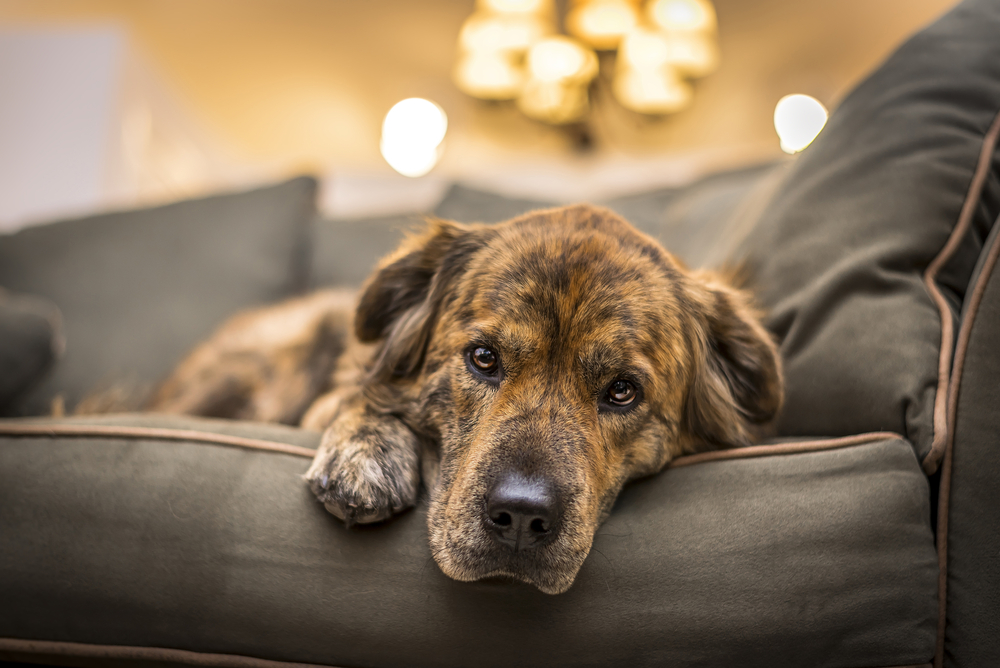Have you ever wondered, “Is my dog depressed?” Dogs experience a wide range of emotions that we continue to learn more about. If they do something they shouldn’t have, they slump, sulk, and look away. Or they tremble and hide under the covers when they are afraid during a passing thunderstorm. In addition to normal emotions, your pet can also experience mental health disorders that are similar to those that affect humans.
If you have asked yourself, “is my dog depressed,” we are here to help with the answers. Your friends at Union Lake Veterinary Hospital offer you this overview of depression and anxiety in canines.
The Causes and Symptoms of Depression
The reasons behind canine depression vary. For most, if it is an acute situation, it is usually prompted by a major change. Dogs rely on a defined schedule for a sense of security and well-being, which is why maintaining routine is of the utmost importance. Changes that can spur a bout of sadness or depression in dogs are:
- Residential move
- Loss of owner or other pet
- New baby
- New relationship/marriage
- Adoption of another pet
- Owner has depression/anxiety
Other factors that can lead to canine depression include not getting enough enrichment and exercise, being left alone too much, genetics, and pain.
Signs of depression include:
- Changes in appetite
- Changes in sleeping (more or less)
- Restlessness
- Lack of enjoyment in toys, exercise, etc.
- Lethargic
- Whining or howling
- Possible aggression
Anxiety and Phobia in Canines
Some dogs are anxious because they weren’t socialized or have had trauma in their early development. Others have phobia or stress as a reaction to something that is happening such as noise, change, or separation. Some dogs are just more susceptible to anxiety due to genetic factors. Breeds such as Labrador Retriever, Border Collie, Jack Russell Terrier, German Shepherd, and Bichon Frise are breeds that suffer from this disorder. These are also the breeds that exhibit more serious separation anxiety.
Dogs with high energy and are considered working dogs require much more exercise and stimulation, which is why they are prone to anxiety disorders when left alone, especially indoors.
Symptoms of anxiety in dogs are:
- Pacing
- Agitation
- Hiding
- Scratching at doors
- Vocalization
- Clinginess
- Trembling
- Attempts to escape
- Digging
- Panting
Many times, anxious dogs will have episodes of diarrhea and/or vomiting, and will sometimes lose weight or be finicky eaters.
As with the above symptoms, only through consultation, examination, and lab work can we accurately determine if a pet has emotional versus physical issues to address. Please call us for an appointment if your pet is experiencing these symptoms, or any others that concern you.
Is My Dog Depressed or Anxious?
If your dog is depressed or anxious, there are multiple ways we can work together to help your sweet canine get back on track. Mood improvement and stabilization come with spending more quality time with your dog, removing triggers that lead to anxiety/depression (change in routine, noise, etc.), and giving them plenty of exercise. Training through behavior modification, and socializing your dog, are both instrumental in good emotional health.
When your dog’s mental health condition is more serious, we do offer medications and behavioral consultations to improve mood and alleviate symptoms. For more information on anxiety or depression in dogs, please do not hesitate to contact us.

